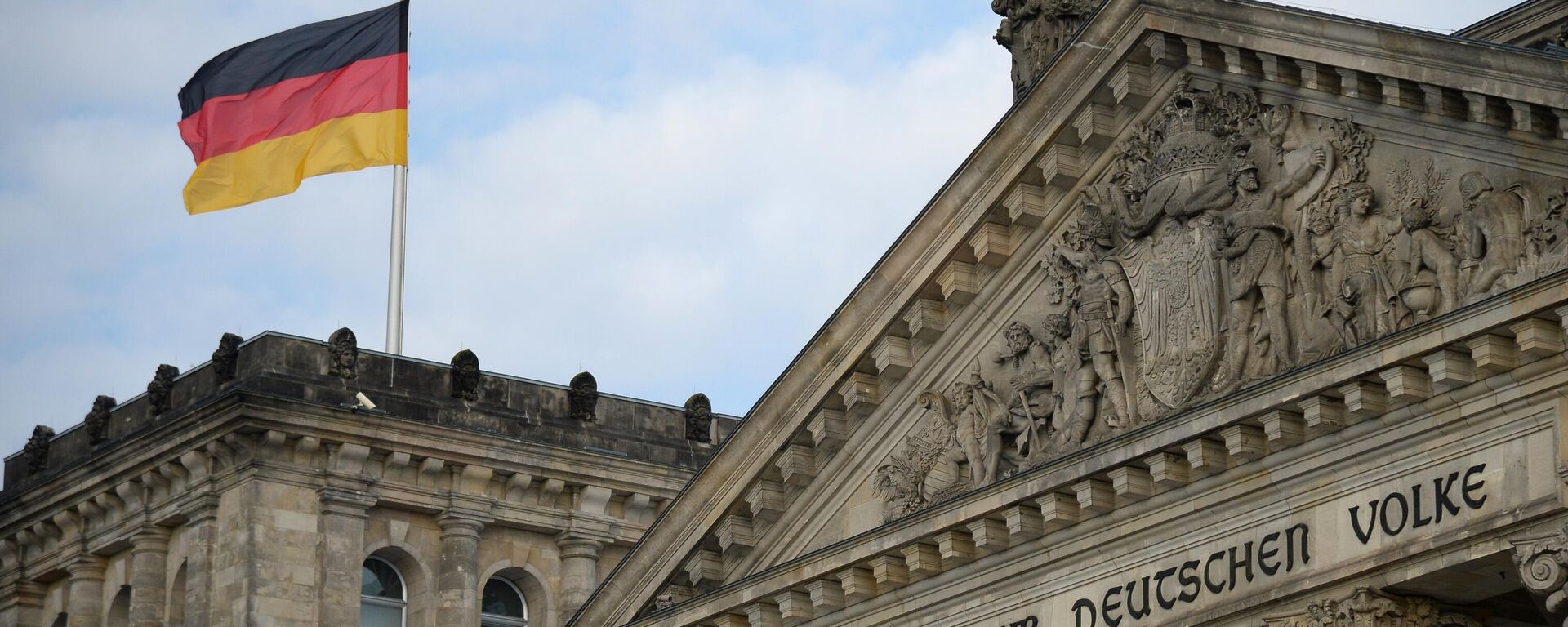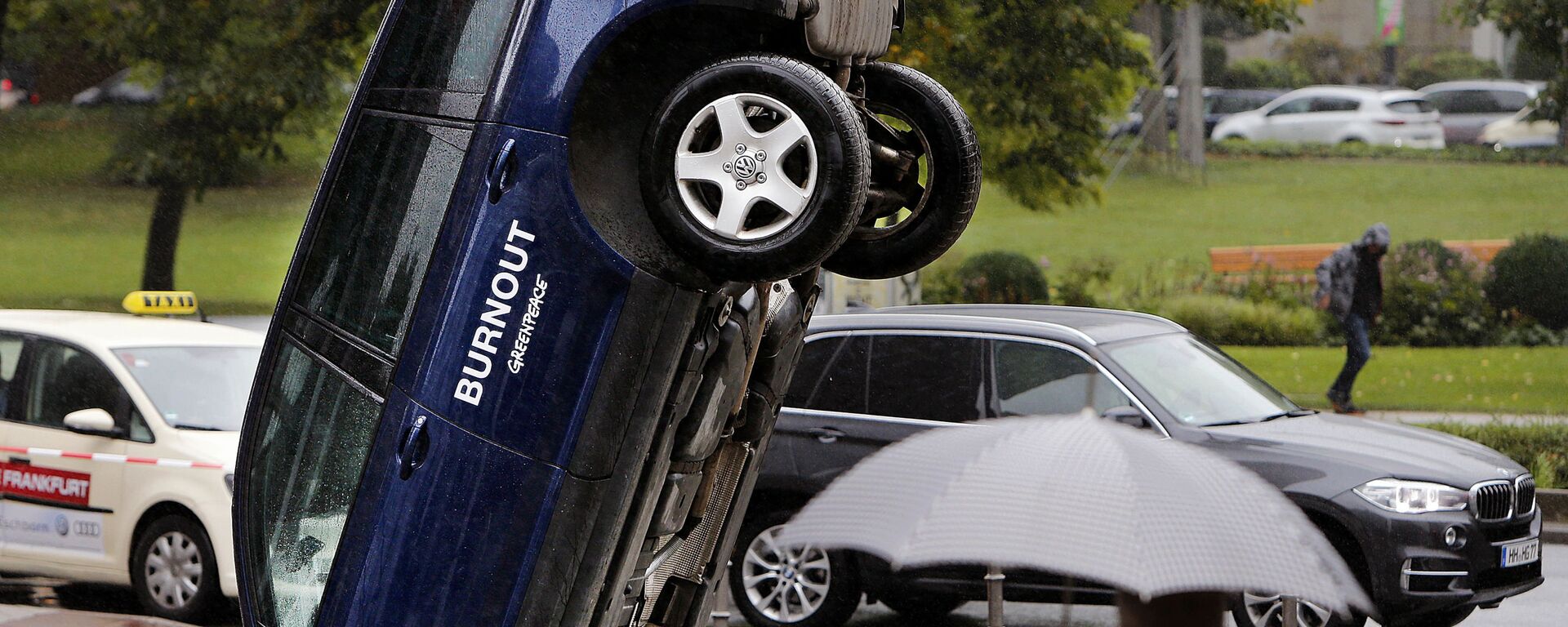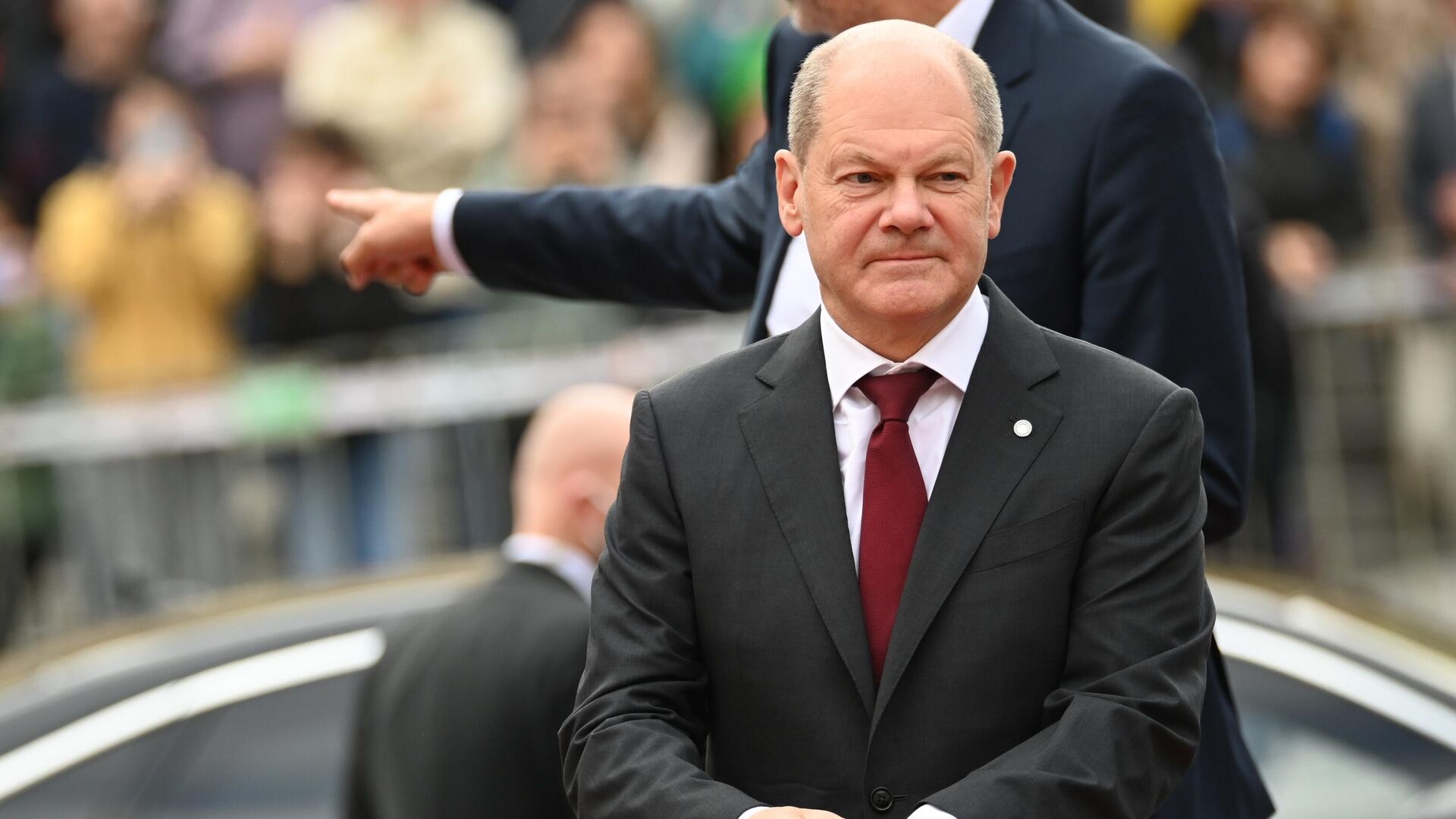https://sputnikglobe.com/20231120/german-courts-decision-stops-scholz-governments-budget-maneuver-amid-dire-economic-straits-1115074069.html
German Court's Decision Stops Scholz Government's Budget Maneuver Amid Dire Economic Straits
German Court's Decision Stops Scholz Government's Budget Maneuver Amid Dire Economic Straits
Sputnik International
A recent court ruling in Germany challenges Chancellor Scholz's government's budgetary strategies, stirring debate within the ruling coalition and drawing criticism from the opposition. However, the verdict casts a shadow over the country's potential economic challenges.
2023-11-20T16:11+0000
2023-11-20T16:11+0000
2023-11-20T16:11+0000
economy
europe
newsfeed
christian lindner
olaf scholz
germany
german constitutional court
free democratic party (fdp)
parliament
https://cdn1.img.sputnikglobe.com/img/07e7/0b/0c/1114907920_0:0:3065:1725_1920x0_80_0_0_313defac683fecc05f5fd86f4157462d.jpg
Germany’s Vice Chancellor Robert Habeck has commented on the country’s highest court’s recent decision to restrict special off-budget funds, underlining its severe repercussions for the national economy and the impending risk of higher energy prices for households and business entities.On Wednesday, the German Constitutional Court determined that reallocating €60 billion from the 2021 pandemic relief funds to support the Climate and Transformation Fund violated the country's basic law principles. Examining over 60 pages of legal documentation, officials in Chancellor Olaf Scholz's government became concerned. They feared that funding mechanisms amounting to €770 billion might need to be either disbanded or significantly modified by the year's end, based on insights from individuals acquainted with the government's preliminary review.Habeck's Perspective on Impact of RulingThe administration is currently assessing the verdict and its application. However, the decision will have “massive implications" for Germany's evolution towards a greener and more innovative economy," Habeck stated in a Monday media interview. He further mentioned its possible effects on comparable off-budget initiatives.“This is about the core substance of the German economy…The answer is not easy to find, and things could get really difficult,” Habeck noted.Additionally, the vice chancellor stated that initiatives at risk include government backing for enterprises aiming to make their manufacturing processes more environmentally friendly, such as in the steel sector, and the enhancement of solar energy capacity.This unexpected judicial ruling has upended the financial policies of the ruling coalition and catalyzed a new round of discussions about the constitutional regulations in Germany that limit new borrowing, popularly referred to as the debt brake.Habeck, who also holds the position of Federal Minister for Economic Affairs and Climate Action, admitted his view of the rules as "inflexible" while being cognizant of the limitations due to the coalition with the Free Democratic Party, which constricts their maneuverability. When news sources probed about the possibility of suspending the debt brake again, he stated that it was too early for conclusions and avoided speculating.“I can only refer to the economic data and note that 2023 had three-quarters of virtually no growth…How we will implement this ruling has not yet been decided,” Habeck remarked.Furthermore, Habeck highlighted the potential repercussions of the court ruling on Germany's Economic Stabilization Fund, widely known as the WSF.If the court ruling impacts the WSF, it could influence approximately €30 billion of new debt in Germany's 2023 federal budget, initially intended to protect companies against soaring energy costs. Should the government be compelled to adjust the WSF allocations, Habeck indicated that this could increase electricity and gas prices for households and businesses.Party Coalition Debates and Opposition CritiqueMembers of Parliament from Chancellor Scholz's Social Democratic Party and Habeck's Green Party have advocated temporarily suspending the rules, mirroring steps taken during the COVID-19 pandemic and energy crisis periods.The Free Democrats, headed by Finance Minister Christian Lindner and known for their prudent financial policies, have refused to consider such a measure.The vice chancellor criticized the opposition conservatives for challenging the KTF fund in the Constitutional Court, noting that this could prevent the government from shielding consumers from rising energy costs.“They filed the legal challenge, it must be said, in favor of people in Germany paying higher prices,” he told media outlets.The ruling presents a significant obstacle for the Scholz-led government and his three-party coalition. It potentially undermines his reputation for fiscal prudence as a Social Democrat and heightens the risk of internal strife within the alliance over fiscal strategies.
https://sputnikglobe.com/20231115/germanys-energy-woes-spark-deindustralization-on-considerable-scale-1114980581.html
https://sputnikglobe.com/20231016/germany-unlikely-escape-recession-until-2024-economists-predict-1114228927.html
germany
Sputnik International
feedback@sputniknews.com
+74956456601
MIA „Rossiya Segodnya“
2023
Chimauchem Nwosu
https://cdn1.img.sputnikglobe.com/img/07e7/09/01/1113046371_0:99:1536:1635_100x100_80_0_0_9c5c627283eca931c39fe4852bbb301c.jpg
Chimauchem Nwosu
https://cdn1.img.sputnikglobe.com/img/07e7/09/01/1113046371_0:99:1536:1635_100x100_80_0_0_9c5c627283eca931c39fe4852bbb301c.jpg
News
en_EN
Sputnik International
feedback@sputniknews.com
+74956456601
MIA „Rossiya Segodnya“
Sputnik International
feedback@sputniknews.com
+74956456601
MIA „Rossiya Segodnya“
Chimauchem Nwosu
https://cdn1.img.sputnikglobe.com/img/07e7/09/01/1113046371_0:99:1536:1635_100x100_80_0_0_9c5c627283eca931c39fe4852bbb301c.jpg
economic stabilization fund, green economy, olaf scholz, higher energy prices, debt brake, special off-budget funds, germany's constitutional court decisions, robert habeck, german economy.
economic stabilization fund, green economy, olaf scholz, higher energy prices, debt brake, special off-budget funds, germany's constitutional court decisions, robert habeck, german economy.
German Court's Decision Stops Scholz Government's Budget Maneuver Amid Dire Economic Straits
A recent court ruling in Germany has challenged the budgetary strategies of Chancellor Scholz's government, stirring debate within the governing coalition and drawing criticism from the opposition. However, the verdict casts a shadow over the country's potential economic challenges.
Germany’s Vice Chancellor Robert Habeck has commented on the country’s highest court’s recent decision to restrict special off-budget funds, underlining its
severe repercussions for the national economy and the impending risk of higher energy prices for households and business entities.
On Wednesday, the German Constitutional Court determined that reallocating €60 billion from the 2021 pandemic relief funds to support the
Climate and Transformation Fund violated the country's basic law principles. Examining over 60 pages of legal documentation, officials in Chancellor Olaf Scholz's government became concerned. They feared that funding mechanisms amounting to €770 billion might need to be either disbanded or significantly modified by the year's end, based on insights from individuals acquainted with the government's preliminary review.
Habeck's Perspective on Impact of Ruling
The administration is currently assessing the verdict and its application. However, the decision will have “massive implications" for Germany's evolution towards a greener and more innovative economy," Habeck stated in a Monday media interview. He further mentioned its possible effects on comparable off-budget initiatives.

15 November 2023, 17:34 GMT
“This is about the core substance of the German economy…The answer is not easy to find, and things could get really difficult,” Habeck noted.
Additionally, the vice chancellor stated that initiatives at risk include government backing for enterprises aiming to make their manufacturing processes more environmentally friendly, such as in the steel sector, and the enhancement of solar energy capacity.
This unexpected judicial ruling has upended the financial policies of the ruling coalition and catalyzed a new round of discussions about the constitutional regulations in Germany that limit new borrowing, popularly referred to as the debt brake.
Habeck, who also holds the position of Federal Minister for Economic Affairs and Climate Action, admitted his view of the rules as
"inflexible" while being cognizant of the limitations due to the coalition with the Free Democratic Party, which constricts their maneuverability. When news sources probed about the possibility of suspending the debt brake again, he stated that it was too early for conclusions and avoided speculating.
“I can only refer to the economic data and note that 2023 had three-quarters of virtually no growth…How we will implement this ruling has not yet been decided,” Habeck remarked.
Furthermore, Habeck highlighted the potential repercussions of the court ruling on Germany's
Economic Stabilization Fund, widely known as the WSF.
If the court ruling impacts the WSF, it could influence approximately €30 billion of new debt in Germany's 2023 federal budget, initially intended to protect companies against soaring energy costs. Should the government be compelled to adjust the WSF allocations, Habeck indicated that this could increase electricity and gas prices for households and businesses.
Party Coalition Debates and Opposition Critique
Members of Parliament from Chancellor Scholz's Social Democratic Party and Habeck's Green Party have advocated temporarily suspending the rules, mirroring steps taken during the COVID-19 pandemic and energy crisis periods.

16 October 2023, 13:46 GMT
The Free Democrats, headed by Finance Minister Christian Lindner and known for their prudent financial policies, have refused to consider such a measure.
The vice chancellor criticized the opposition conservatives for challenging the KTF fund in the Constitutional Court, noting that this could prevent the government from shielding consumers from rising energy costs.
“They filed the legal challenge, it must be said, in favor of people in Germany paying higher prices,” he told media outlets.
The ruling presents a significant obstacle for the Scholz-led government and his three-party coalition. It potentially undermines his reputation for fiscal prudence as a Social Democrat and heightens the risk of internal strife within the alliance over fiscal strategies.





